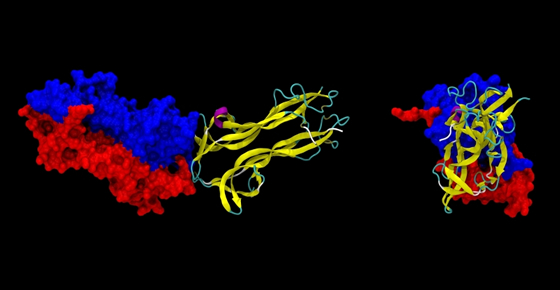
What is BDNF and why is it so important? BDNF stands for brain-derived neurotrophic factor and is a molecule that seems to be responsible for many health benefits. Here is a short story of BDNF and what we can do to increase its level.
The role of neurotransmitters
Humans have always been curious about the brain and how it works. What is happening in our brain when we generate a thought, when we remember what we ate yesterday for dinner, when we try to raise an arm, when we feel the cold temperature of the water we are drinking, or when we suddenly get scared of a dog that is barking at us. Neuroscientists figured that somehow our neurons were connected together and communicate to transmit information. In the 20th century, researchers discovered that neurons did actually not touch each other but had a small space in between them, called a synapse. Whenever an electric signal arrives to theend of a neuron, it releases a chemical called a neurotransmitter in that space. The neurotransmitter then reaches the adjacent neuron and information is transmitted.
There are many different type of neurotransmitters that you probably heard of before: glutamate, GABA, serotonin, dopamine, norepinephrine…Depending on the type of neurotransmitter present in that synapse, it will fire a certain group of neurons that form a circuitry. Some parts of the brain contains more receptors of some specifics neurotransmitters and hence are more influenced by them. Let’s take for example the basal ganglia, which is a structure of the brain that is responsible to initiate and to interrupt movement. In the basal ganglia, there is a structure called the substantia nigra, which is rich in dopamine-dependent neurons. When those neurons start to die at a quick rate, we start losing normal control of our movement, ourarms become stiff, we develop a tremor in the hands, and our gait becomes shuffle: this is Parkinson’s disease. Another example: Neurons that are dependent of serotonin are associated with mood regulation. People with low levels of serotonin have shown to have signs of depression.
The missing links: the factors
So low levels of dopamine can affect movement, low levels of serotonin might cause depression and mood swings. However, neuroscientists were surprised because it’s not always the case. Sometimes adding levels of a neurotransmitter (with medication for instance) has not clinical effect. At the end of the 20th century, researchers found that there was other molecules that were playing a role in the way neurotransmitters work. Those new molecules, which they called factors, seem to act like a fertilizer and enhance neurotransmission. Since then, many factors were discovered but the most famous of them is BDNF, because of its role in the central nervous system.
BDNF is present in great abundance in the hippocampus, the area of the brain that is responsible to memory and cognitive function, as well as in the hypothalamus, which is the area of the brain that regulate our metabolism (appetite, insulin sensitivity, glucose and lipid metabolism,…BDNF has also been located in the olfactory bulb, the cortex, the brainstem and even the spinal cord.
Why is BDNF so important?
How does BDNF affect your body and why is it so important for your brain? Here is a short list:
- BDNF supports neuronal growth during brain development phase. It also enhances neuron survival during a trauma, or ischemic event (stroke).
- BDNF enhance neuroplasticity by strengthening synapses connection between neurons. In other words, it helps the neurons to connect with each other in a stronger way.
- BDNF promotes angiogenesis (development of new blood vessels), and promote survival of cardiac cells and endothelial cells (which are the cells that cover the inside of blood vessels).
- BDNF acts as an anti-inflammatory and anti-apoptosis (cell death).
- Presence of BDNF helps to regulate blood sugar metabolism, to reduce low density lipids, cholesterol and triglycerides, hence reducing risks of obesity, diabetes and cardiovascular diseases. Moreover, because of the fact that it helps to regulate blood sugar levels, BDNF has also shown to down regulate appetite, and hence decrease food intake.
- Low levels of BDNF have been associated with Alzheimer’s disease, depression, schizophrenia, Parkinson’s disease,multiple sclerosis. Which does make sense since all those disorders have been associated with decreased synapse connectivity and cell death.Increasing BDNF will hence help to slow down the progression or at least attenuate the symptoms of those disorders. Alcohol is another thing that decreases BDNF production.
How can you elevate your BDNF levels
- Fish oil: DHA has been shown to increase BDNF levels. Another reason to take fish oil.
- Polyphenols: Those are the chemicals found in plants rich in antioxidants: blueberries, greens, onions, dark chocolate, coffee, almonds, ginger, cinnamon,…
- Resveratrol: It is a phytonutrient just like polyphenols, but it is commonly found in grapes that are used to make wine. It gave rise to the famous “French paradox”, named after a study that suggested that drinking one glass of red wine a day is good for the heart.
- Fasting: More on this later. But fasting is a highly effective way to increase BDNF, especially in combination with exercises and DHA.
- Sleep: More particularly deep sleep has been shown to increase BDNF levels. To that can also be added meditation and deep breathing.
- Exercises: probably the most effective way but also the most neglected way to increase BDNF levels. Both prolonged (endurance) exercises and high intensity (short duration) exercises seem to be beneficial.
